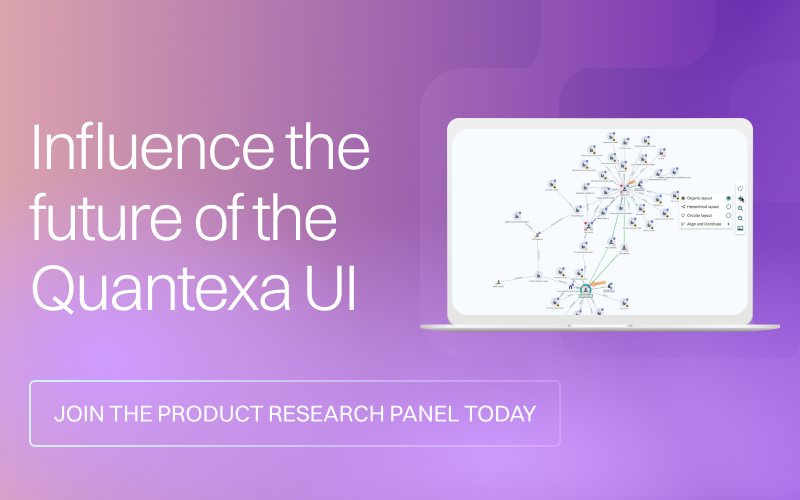 Quantexa Team
Quantexa TeamAdvancing Correspondent Banking Insights: Identification of non-customer entities
In the world of correspondent banking, a significant challenge lies in unravelling the intricate web of relationships and managing onboarding processes for respondent banks. The importance of these elements becomes clear when considering the bigger picture. Equally essential within the scope of correspondent banking's anti-money laundering measures is the identification of the non-customer entity also known as customer’s customer that appears in the transactions. Delving into the finer details and examining the customer’s customer enables us to uncover smaller risk components and gain a deeper insight into the transactional data.
Identifying and evaluating the risks associated with individual customers, businesses, and payment service providers within this ecosystem lays the foundation for a more robust and reliable risk model. While a broad perspective is crucial, zooming in on the risks faced by institutions is even more vital, particularly in the context of correspondent banking's AML efforts. This is where Quantexa steps in as a comprehensive solution provider, addressing all three inherent risks: monitoring complete transaction paths, respondent banks and affiliates, and effectively supporting customer’s customer identification issues.
Elevating entities identification with Quantexa: A Comprehensive Overview
This article sheds light on how Quantexa's innovative approach enhances the process of identification of non-customer entities. This process stands as one of the most demanding, involving the identification of individuals or businesses within transactions. Yet, it is easy to miss pertinent risks due to mismatches with watchlist hits or other risk indicators. How can we overcome these challenges? How can we support the identification process in correspondent banking, where internal customer data is not enough?
The answer lies in providing context, linking data, and enriching datasets with external information. Through the power of entity resolution and network generation, Quantexa seamlessly integrates external data and assigns scores to it. This not only simplifies the identification of the Customer's Customer but also helps assess risk by aligning individuals or businesses with watchlists and other risk factors. Remarkably, this process is entirely automated, with Quantexa presenting meticulously resolved data to investigators. The incorporation of networks enhances the visual representation of data, speeding up investigations and reducing the potential for errors.
The network above illustrates an alert in Correspondent Banking solution Quantexa created a contextual view around the non-customer entities based solely on external data, linking them to Corporate Registries and watchlists among other data sources and creating links between transacting parties.
Quantexa's versatile infrastructure enables the ingestion of various datasets. Entities are created and transformed into a fortified investigative resource, enriched with additional variables such as transactional jurisdictions, historical case outcomes, counterparties, commercial registries, watchlists, and more. By contextualizing entities and individuals beyond the bank's direct clientele, Quantexa assists in effectively managing risks and ensuring compliance with regulatory mandates.
Key Aspects of Quantexa's Customer’s Customer enrichment in Correspondent Banking
Entity Resolution in Correspondent Banking
Entity resolution takes centre stage, involving data cleansing, normalization, and the application of advanced machine learning and AI models to establish reliable entity identification methods. This process groups records related to each entity, compiles a comprehensive set of attributes, and creates labelled links between entities and source records. By joining data from diverse sources, including external commercial registries, internal records, and watchlists, Quantexa constructs a comprehensive view of natural persons and business entities, primed for thorough investigation.
Network Generation in Correspondent Banking
Network generation involves connecting entities through transactions and other data-driven relationships. These connections encompass individuals, shared addresses, phone numbers, email addresses, corporate structures, watchlists, and AML cases. Networks are crafted using both internal and external data sources, with a focus on relevance to AML detection and investigation. Quantexa's approach mirrors industry best practices, with the platform's network generation templates adaptable in collaboration with bank data scientists and investigators. This ensures alignment with the prevailing risks in the bank's customer and customer's customer landscape.
A Fresh Perspective on Customer’s Customer Risk with Quantexa
Quantexa's integration of entity resolution and network generation offers an entirely new outlook on Customer’s Customer risks, streamlining their mitigation. To understand more about how Quantexa works in Correspondent Banking AML, reach out to us and schedule a demo.
Share with us what is the biggest struggle for your Institution when it comes to non-customer entities identification?
